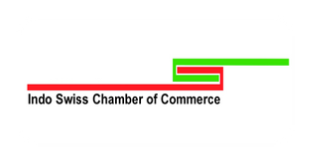SLX has launched Live Master Classes with deeper insights into sustainability, by industry experts. Enroll for the 45-minute session for free!

The certification course offers input from various experts from the industry. The course is validated globally with an industry-validated skills framework.

Do you want your job to be value-oriented? Or would you like your present job to shift focus towards meaning and value? Take this certification course and build what you are looking for!

The certification course will diversify your skillset. This will help you find better work opportunities in better companies!
The sessions will be delivered by world class faculty members with vast experience in the field of education and sustainability.
Our Certifications will help you integrate sustainable development processes and practices with ease into your deliverables & activities.
Our certification courses have comprehensive reference material on Sustainability, ESG, and many related topics.




With sustainability becoming a buzzword over the last few years, more consumers than ever are becoming conscious about the companies they purchase from and the products they consume. However, this has also led to instances of greenwashing among companies.
Greenwashing (or green sheen) is when companies try to deceive customers by portraying their products as sustainable when they are really not. This is a common practice among companies across various industries that want to reap the benefits of looking sustainable when they are really not.
Here are some of the ways companies can use greenwashing to appear more sustainable than they are:
Green imagery:
This happens when brands place misleading imagery on their products and services. This could include pictures of nature, animals, or even the liberal use of the colour green. Since we tend to associate such imagery with the environment, it might seem like they are environmentally-friendly products.
For example, water companies tend to use images of nature on their packaging – lush forests, rows of mountains and calm rivers. However, the reality is not quite as rosy as that. Single-use plastics (that are used for packaged water) pollute our lakes, rivers and oceans and can persist without degrading for centuries, making them an unsustainable product.
Providing no proof:
When was the last time you followed up to see if a brand that made claims about it being sustainable really lived up to its word? If you haven’t, you might not be alone – most of us tend to read the packaging or advertising and simply let it go.
When brands make any claim, the burden of proof lies on them. Unfortunately, not many brands honour that. Whether they’re advertising that their product is made from sustainable materials or that the sourcing process is itself sustainable, it’s important for them to include the required proof.
For example, fossil fuel companies have increasingly been trying to position themselves as carbon neutral or moving towards sustainability. However, upon a closer look, they have been found to adhere to none of these claims.
Being selective about the information provided:
Many brands that have a range of products will obviously have some products that are more sustainable than others. Instead of focusing on their entire product line, some brands only focus on and promote their more sustainable products to make their entire range seem sustainable.
FMCG brands can be especially guilty of this. With a large portfolio of products under their belt, they can focus on heavily advertising their sustainable products. This creates a false impression in consumers’ minds that ALL of the brand’s products are sustainable, while it might only apply to a select few.
Being vague about details:
Brands often put out claims such as “all natural” or “all organic” to make themselves seem sustainable. However, products that are natural can also be unsustainable.
Let’s take the denim industry for example – denim is made from cotton, which is a natural product. However, it also takes about 10,000 litres of water to make one pair of jeans, which makes it an extremely unsustainable product to produce.
This is not just a claim prevalent in the denim industry – other industries do the same. For example, products that use palm oil (which could range from food items to detergents and cosmetics) are often marketed as natural products. However, the cultivation of palm oil can be deeply unsustainable for the environment and the communities it is grown in. To be counted as a sustainable palm oil product, it is important that they have the RSPO (Roundtable on Sustainable Palm Oil) certification.
The only way to reduce instances of greenwashing is to have stricter laws surrounding the definition of sustainable products. Having these laws can force companies to actually become more sustainable.
This will also allow us to see the true effect of all that we consume and become more sustainable individuals. To understand more about sustainability and your role in it, head on to our learning hub to take up our courses on sustainability.